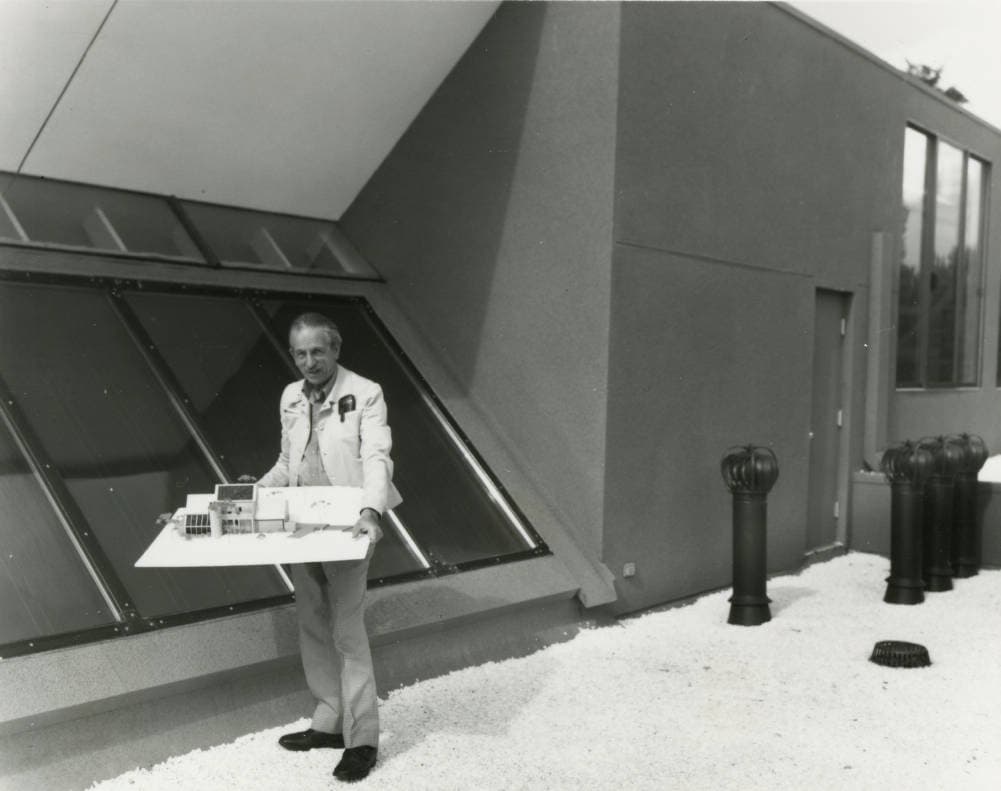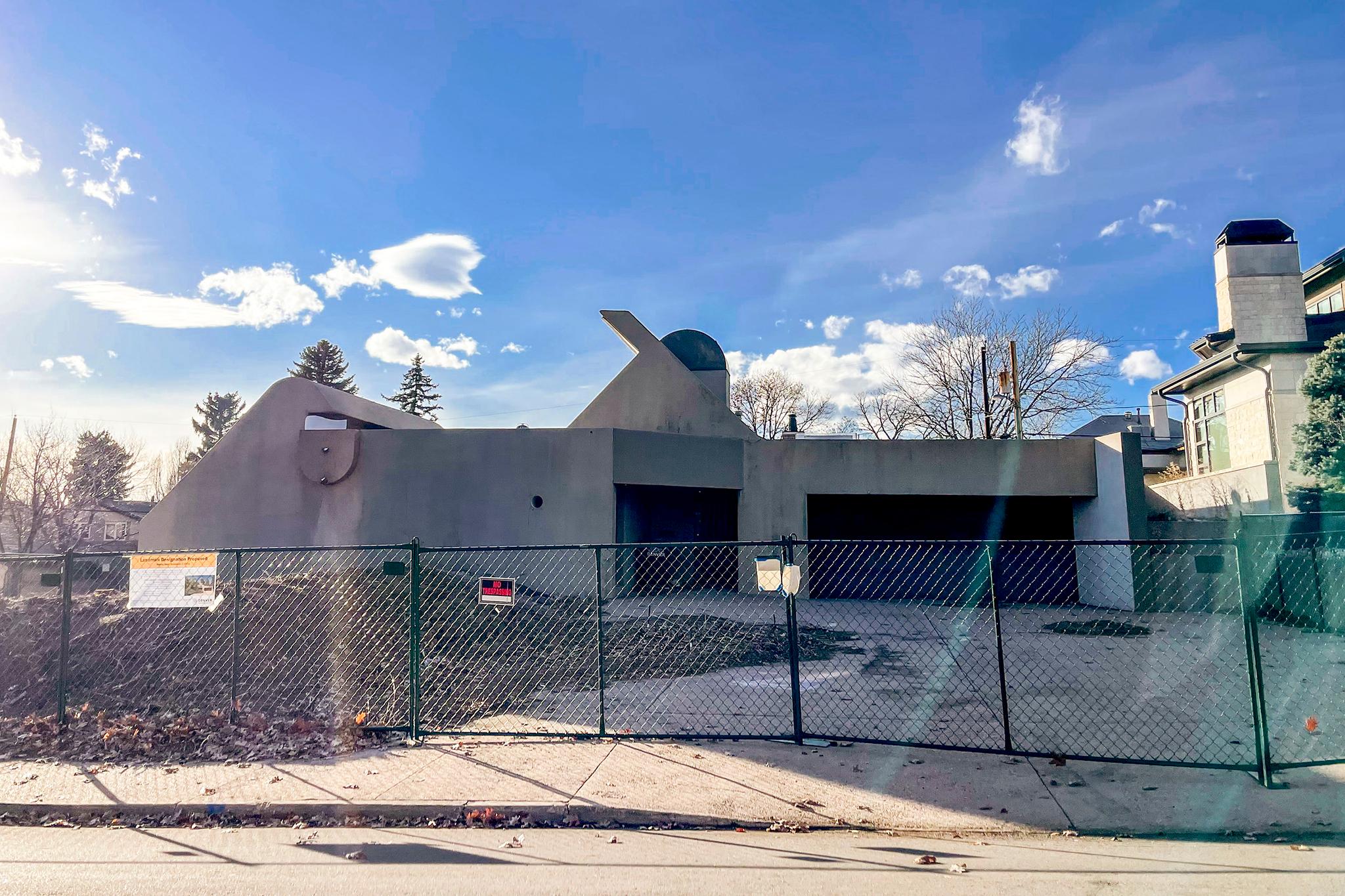It's a building that preservationists have called one of the "most important designs" of its kind. Neighbors know it as the "CIA Bunker of N Cherry Creek." But an engineer considers it "structurally unsound."
Now, the house designed by famous architect Richard Crowther is headed toward demolition.
On Monday, City Council voted 8-2 against a proposal to give 401 Madison St. a Landmark Designation, citing a lack of preservation-minded buyers and serious disrepair to the building. The vote paves the way for the building's private owners to knock it down and redevelop the land.
It also raised a question the city will likely keep grappling with: how does Denver work to preserve its history before it's too late?
The home in question belonged to Richard Crowther, a well-known Denver architect who pioneered environmental design and passive solar architecture years before solar technology took off.
The house is featured in books on environmental design and Mid-century modern architecture. But when Crowther died in 2006, the building changed hands multiple times and fell into disrepair.
The most recent buyers planned to demolish the home and build two duplexes. They have the support of many in the surrounding Cherry Creek neighborhood, who see the building as a decrepit, abandoned eyesore. Through public feedback, some said the building had become a home to foxes, people experiencing homelessness and a hangout for skateboarders over the years.
But Tom Hart, Michael Hughes and Alan Gass applied to preserve the building, citing its historic status.

In Monday's City Council meeting, a few architects, including Hart and Gass, spoke in support of saving the building. Many neighbors and a spokesperson for the owners voiced opposition.
"Every day, people hop on board," Hart said at Monday's Council meeting. "We're so fortunate that an important person like Crowther called Denver home, and built a landmark residence in our backyard. Our privilege comes with a greater responsibility to protect it."
Hart said that landmark status can unlock money to help preserve a building and sometimes stabilize or even grow the value of a building over time.
But preserving Crowther's home gets into the question of property rights. The owners, MAG Builders, bought the building for almost $4 million, with the assumption that they could redevelop the property and resell it in a neighborhood with high property values. Landmark designation would have forced them to preserve the building as is.
Given the extent of the damage over the years, Steve Gilman, a lawyer representing the owners, said repairing the building could cost an estimated $3 million without guarantees that key historical elements could be saved. Gilman said the owners were willing to sell to a buyer interested in preservation but could not find anyone. Meanwhile, other Crowther buildings still exist in Denver.
"Hostile landmark designation of this residence will have a chilling effect on residential development in Denver, at a time when Denver desperately needs more investment in residential real estate development," Gilman said at the public hearing Monday. "The current condition of the structure cannot justify the exceptional investment required to restore this property and bring it up to code."
Council members said they would have liked to see an independent survey of the building, rather than solely the reports commissioned by the owners. Plus, supporters of the building questioned whether there was really enough time to find another buyer, especially because the owners bought the property before it went on the market.

Some on City Council voted against preservation but lamented that the building could not have been saved earlier.
"It's a damn shame that a remarkable property like this can be neglected for so many years, and only when it gets to the point of demolition, do we have a concerted effort to conserve them," said Councilman Kevin Flynn. "It's a remarkable work for sure."
Flynn voted against preservation, saying that he did not see a viable path towards preservation in the coming years. Many Council members voiced similar sentiments, calling for a more proactive approach to preserve Denver history before sites fall into such disrepair that it can be hard to find buyers.
"We have to have a balance between celebrating where Denver came from, and setting Denver up for our future," said Councilman Chris Hinds, who represents the district with 401 Madison St. and also voted against preservation. "I truly hope that we can be more proactive with our historic designations."
Councilwomen Candi CdeBaca and Debbie Ortega were the sole votes in favor of preservation.
Ortega spoke about living in a historic house without designation, as she watched expensive duplexes spring up all around her.
"I think the goal and the challenge for this body and our city is to try to hurry and get the work done... and really identify what those gems are that we want to preserve," she said. "Because I'll tell you what, [in] my neighborhood, there's very little left of what my neighborhood used to look like."
Councilwoman Robin Kniech voted against the proposed designation because she could not see a path toward preservation through official designation. "This is a heartbreaker," she said.
But Kniech also spoke directly to the owners, reminding them that there is another way. They could move forward with drafting redevelopment plans, and while they wait for permits and approvals, list the property and continue looking for a buyer willing to preserve rather than demolish.
It's happened before. "That's only because of owners who've been open to ideas that did not come from this dais," she said.
The fate of 401 Madison St. now lies solely in the hands of its owners.
Editor's note: This article has been updated with the correct spelling of Alan Gass' name.











